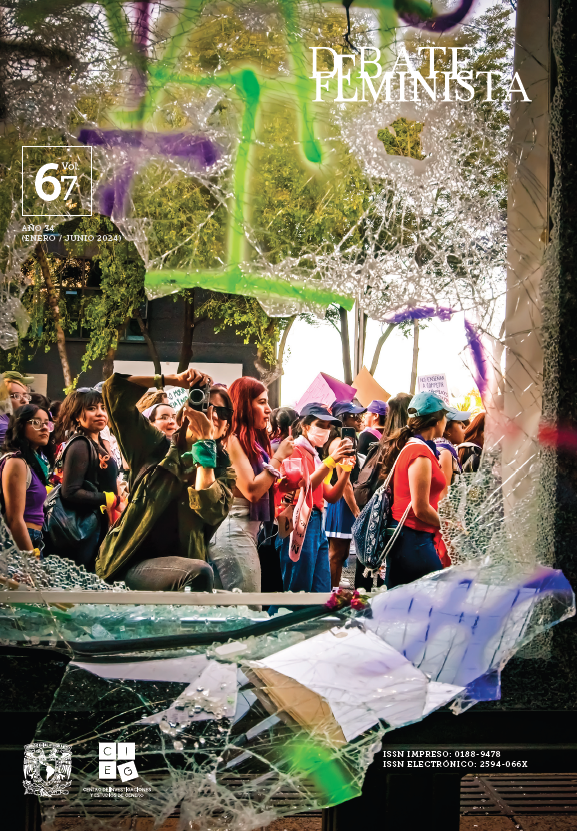Medical Identity and Masculinity: Normative, Performative, and Phenomenological Similarities
Main Article Content
Abstract
Although a close relationship is known to exist between masculinity and the medical profession, the similarities that exist between medical identity and masculinity have yet to be established. Based on qualitative research, this article presents three types of similarities between medical identity and masculinity: normative, about performance, and phenomenological. The first ones include explicit and tacit norms, particularly the strength required by medical identity, predicated on a heroic-military conception of masculinity. Performance affinities refer to the enactment of medical identity and masculinity, and include entitlement, mansplaining, and expressions of toxic masculinity. The phenomenological similarities show that doctors and men coincide in having contradictory experiences. The article concludes that medical identity is a masculinized professional identity, which encourages gender discrimination and sexual harassment within the Mexican medical field.
Article Details

This work is licensed under a Creative Commons Attribution-NonCommercial-NoDerivatives 4.0 International License.
Esta es una publicación bajo la licencia Creative Commons Attribution-Non Commercial-No Derivatives 4.0 International (CC BY-NC- ND 4.0). Para mayor información sobre el uso no comercial de los contenidos que aquí aparecen, favor de consultar http://creativecommons.org/licenses/by-nc-nd/4.0/
References
Agoff, Carolina y Cristina Herrera. 2019. “Entrevistas narrativas y grupos de discusión en el estudio de la violencia de género”, Estudios Sociológicos, vol. 37, núm. 110, pp. 309-338. https://doi.org/10.24201/es.2019v37n110.1636
Ariza, Marina. 2017. “Vergüenza, orgullo y humillación: contrapuntos emocionales en la experiencia de la migración laboral femenina”, Estudios sociológicos, vol. 35, núm. 103, pp. 65-89. https://doi.org/10.24201/es.2017v35n103.1510
Babaria, Palav, Sakena Abedin, David Berg y Marcella Nunez-Smith. 2012. “‘I’m too used to it’: A Longitudinal Qualitative Study of Third Year Female Medical Students’ Experiences of Gendered Encounters in Medical Education”, Social science & medicine, vol. 74, núm. 7, pp. 1013-1020. https://doi.org/10.1016/j.socscimed.2011.11.043
Beagan, Brenda L. 2000. “Neutralizing Differences: Producing Neutral Doctors for (Almost) Neutral Patients”, Social science & medicine, vol. 51, núm. 8, pp. 1253-1265. https://doi.org/10.1016/S0277-9536(00)00043-5
Beasley, Chris. 2020. “Feminism and Men/Masculinities Scholarship: Connections, Disjunctions and Possibilities”, en Lucas Gottzén, Mellström Ulf y Tamara Shefer (comps.), Routledge International Handbook of Masculinity Studies, Nueva York, Routledge, pp. 31-40.
Blazquez, Norma. 2008. El retorno de las brujas. Incorporación, aportaciones y críticas de las mujeres a la ciencia, Ciudad de México, CEIICH-UNAM.
Brown, Michael. 2010. “‘Like a Devoted Army’: Medicine, Heroic Masculinity, and the Military Paradigm in Victorian Britain”, Journal of British Studies, vol. 49, núm. 3, pp. 592-622. https://doi.org/10.1086/652000
Burgess, Diana J., Anne Joseph, Michelle Van Ryn y Molly Carnes. 2012. “Does Stereotype Threat Affect Women in Academic Medicine?” Academic Medicine, vol. 87, núm. 4, pp. 506. https://doi.org/10.1097/ACM.0b013e318248f718
Butler, Judith. 1997. “Sujetos de sexo / género / deseo”, Feminaria, vol. 10, núm. 19, pp. 1-20. Disponible en
Butler, Judith. 2001. “Fundamentos contingentes: el feminismo y la cuestión del ‘postmodernismo’”; La Ventana, vol. 2, núm. 13, pp. 7-41. https://doi.org/10.32870/lv.v2i13.549
Canales, Manuel y Anselmo Peinado. 1995. “Grupos de discusión”, en Juan Manuel Delgado y Juan Guitiérrez (coords.), Métodos y técnicas cualitativas de investigación en ciencias sociales, Madrid: Síntesis Psicológica, pp. 287-316.
Cassell, Joan. 1997. “Doing Gender, Doing Surgery: Women Surgeons in a Man’s Profession”, Human Organization, vol. 56, núm. 1, pp. 47-52. https://doi.org/10.17730/humo.56.1.2362n66w4522428h
Castro, Roberto y Joaquina Erviti. 2015. Sociología de la práctica médica autoritaria. Violencia obstétrica, anticocepción inducida y derechos reproductivos, Cuernavaca, CRIM-UNAM.
Colectivo Médicxs en Formación [@Medsenformacion]. (2022, 7 de marzo) La #misoginia en la #medicina es una realidad y desde el Colectivo, lxs invitamos al #Space para dialogar y plantear soluciones. [Audiograbación del space]. Twitter. https://twitter.com/Medsenformacion/status/1500975890624303104?s=20&t=BWDV5fZs5wuC1EuDIq7GtA
Davis, Georgiann y Rachel Allison. 2013. “Increasing Representation, Maintaining Hierarchy: An Assessment of Gender and Medical Specialization”, Social Thought & Research: A Continuation of the Mid-American Review of Sociology, pp. 17-45. Disponible en
Etherington, Cole, Simon Kitto, Joseph K. Burns, Tracey L. Adams, Arija Birze, Meghan Britton, Singh Sukhbir y Sylvain Boet. 2021. “How Gender Shapes Interprofessional Teamwork in the Operating Room: a Qualitative Secondary Analysis”, BMC health services research, vol. 21, núm. 1, pp. 1-16. https://doi.org/10.1186/s12913-021-07403-2
Etxebarria, Itziar. 2009. “Las emociones autoconscientes positivas: el orgullo”, en E. G. Fernández Abascal (comp.) Emociones positivas, Madrid, Pirámide, pp. 167-180.
Fjørtoft, Karn, Lars Konge, John Christensen y Ebbe Thinggard. 2022. “Overcoming Gender Bias in Assessment of Surgical Skills”, Journal of Surgical Education, vol. 79, núm. 3. https://doi.org/10.1016/j.jsurg.2022.01.006
Fnais, Naif, Charlene Soobiah, Maggie Chen, Erin Lillie, Laure Perrier y Mariam Tashkhandi. 2014. “Harassment and Discrimination in Medical Training”, Academic Medicine, vol. 89, núm. 5, pp. 817-827. https://doi.org/10.1097/acm.0000000000000200
Goffman, Erving. 1959. The Presentation of Self in Everyday Life, Nueva York, Anchor.
Hafferty, Frank. 1998. “Beyond Curriculum Reform: Confronting Medicine’s Hidden Curriculum”, Academic Medicine, vol. 73, núm. 4, pp. 403-407. https://doi.org/10.1097/00001888-199804000-00013
Halberstam, Judith. 2008. Masculinidad femenina, Madrid, Egales.
Harrington, Carol. 2021. “What is ‘Toxic Masculinity’ and why does it Matter?” Men and Masculinities, vol. 24, núm. 2, pp. 345-352. https://doi.org/10.1177/1097184X20943254
Hill, Elspeth y Suzanne Vaughan. 2013. “The Only Girl in the Room: How Paradigmatic Trajectories Deter Female Students from Surgical Careers”, Medical education, vol. 47, núm. 6, pp. 547-556. https://doi.org/10.1111/medu.12134
Hinze, Susan. W. 1999. “Gender and the Body of Medicine or at Least Some Body Parts: (Re)Constructing the Prestige Hierarchy of Medical Specialties”, The Sociological Quarterly, vol. 40, núm. 2, pp. 217-239.
Hydén Lars-Christer y Pia Bülow. 2003. “Who’s Talking: Drawing Conclusions from Focus Groups / Some Methodological Considerations”, Int. J. Social Research Methodology, vol. 6, núm. 4, pp. 305-321. https://doi.org/10.1080/13645570210124865
Kalish, Rachel y Michael Kimmel. 2010. “Suicide by Mass Murder: Masculinity, Aggrieved Entitlement, and Rampage School Shootings”, Health Sociology Review, vol. 19, núm. 4, pp. 451-464. https://doi.org/10.5172/hesr.2010.19.4.451
Kaufman, Michael. 1999. “Men, Feminism, and Men’s Contradictory Experiences of Power”, en J. A. Kuypers (comp.), Men and Power, FernwoodBooks, pp. 59-83. Disponible en: https://www.michaelkaufman.com/wp-content/uploads/2009/01/men_feminism.pdf
Kelly, Laura. 2017. “Irish Medical Student Culture and the Performance of Masculinity, c. 1880–1930”, History of Education, vol. 46, núm. 1, pp. 39-57. http://dx.doi.org/10.1080/0046760X.2016.1181794
Kwon, Eugena. 2017. “‘For Passion or for Future Family?’ Exploring Factors Influencing Career and Family Choices of Female Medical Students and Residents”, Gender Issues, vol. 34, núm. 2, pp. 186-200. http://dx.doi.org/10.1007/s12147-016-9168-3
Lindemann, Hilde. 2014. Holding and Letting Go: The Social Practice of Personal Identities, Nueva York, Oxford University Press.
Martínez, Juliana. 2017. “Dressed Like a Man? Of Language, Bodies, and Monsters in the Trial of Enrique/Enriqueta Favez and its Contemporary Accounts”, Journal of the History of Sexuality, 26, núm. 2, pp. 188-206. https://doi.org/10.7560/JHS26202
Milam, Erika L. y Robert A. Nye. 2015. “An Introduction to Scientific Masculinities”, Osiris, vol. 30, núm. 1, pp. 1-14. Disponible en:
Nye, Robert A. 1997. “Medicine and Science as Masculine ‘Fields of Honor’”, Osiris, vol. 12, pp. 60-79. Disponible en: https://www.journals.uchicago.edu/doi/abs/10.1086/649267?journalCode=osiris
Pascoe, Cherie J. 2011. Dude, you’re a Fag. Masculinity and Sexuality in High School, Berkeley, University of California Press.
Smith-Oka, Vania. 2021. Becoming Gods, New Brunswick, Rutgers University Press.
Smith, Victoria, Cherrie Bethune y Katrina F. Hurley. 2018. “Examining Medical Student Specialty Choice through a Gender Lens: An Orientational Qualitative Study”, Teaching and Learning in Medicine, vol. 30, núm. 1, pp. 33-44. https://doi.org/10.1080/10401334.2017.1306447
Solnit, Rebecca. 2018. Los hombres me explican cosas. Capitán Swing Libros. [falta ciudad de edición]
Tabassum, Nayyara y Antonio Chiesi. 2017. “Doing and Undoing Gender in the Hospital Workplace”, Journal of Interdisciplinary Feminist Thought, vol. 10, núm. 1, p. 2. Disponible en
UNAM. 2022. Médico cirujano, disponible en
Underman, Kelly y Laura. E. Hirshfield. 2016. “Detached Concern?: Emotional Socialization in Twenty-First Century Medical Education”, Social Science & Medicine, núm. 160, pp. 94-101. http://dx.doi.org/10.1016/j.socscimed.2016.05.027
Villanueva, Marcia y Roberto Castro. 2020. “Sistemas de jerarquización del campo médico en México: un análisis sociológico”, Ciência & Saúde Coletiva, vol. 25, núm. 6, pp. 2377-2386. https://doi.org/10.1590/1413-81232020256.28142019
Villanueva, Marcia. 2019. “Discriminación, maltrato y acoso sexual en una institución total: la vida secreta de los hospitales escuela”, Revista Interdisciplinaria de Estudios de Género, núm. 5, e366, http://dx.doi.org/10.24201/reg.v5i0.366
Villanueva, Marcia. 2020. “Medical Training as a Transformative Experience: An Analysis of Doctorhood to Question the Professional Identity Formation Paradigm”, Tapuya: Latin American Science, Technology and Society, vol. 3, núm. 1, pp. 1-20. https://doi.org/10.1080/25729861.2020.1754043
Villanueva, Marcia. 2021. “Somos médicos, no dioses. La identidad médica frente a la pandemia Covid-19”, en David Fajardo-Chica y Olbeth Hansberg (comps.), La vida emocional en la panemia, Seminario Universitario de Afectividad y Emociones, UNAM, pp. 77-101.
Viveros, Mara. 2007. “Teoría feminista y estudios sobre varones y masculinidades. Dilemas y desafíos recientes”, La manzana de la discordia, vol. 2, núm. 4, pp. 25-36.
Waitt, Gordon y Andrew Warren. 2008. “‘Talking Shit over a Brew after a Good Session with your Mates’: Surfing, Space and Masculinity”, Australian Geographer, vol. 39, núm. 3, pp. 353-365. https://doi.org/10.1080/00049180802270549
Witte, Florence M., Terry D. Stratton y Lois M. Nora. 2006. “Stories from the Field: Students’ Descriptions of Gender Discrimination and Sexual Harassment During Medical School”, Academic Medicine, vol. 81, núm. 7, pp. 648-654. https://doi.org/10.1097/01.ACM.0000232421.04170.d2



